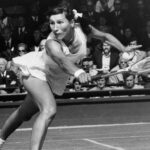50 years on: When Olga Morozova served and volleyed her way to Roland-Garros final
The 25-year-old was beaten in the final by Chris Evert but joined forces with the American to win the doubles title and make history for Russian tennis
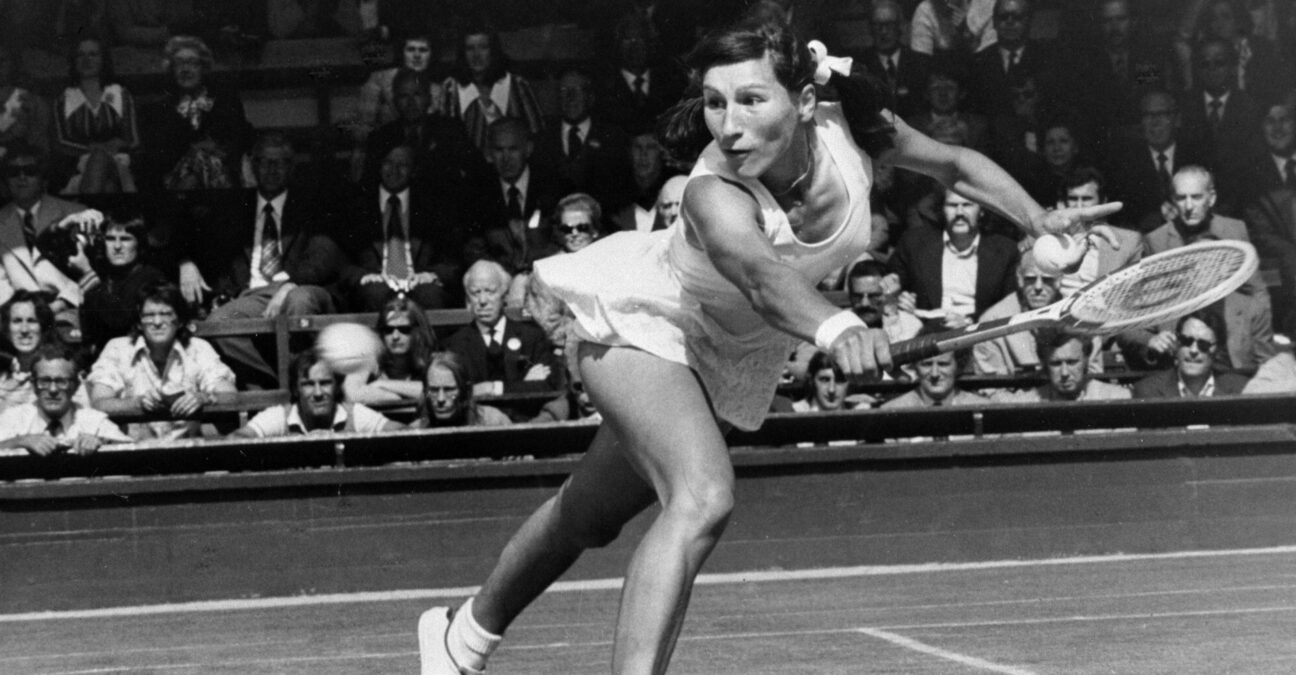 Morozova, Wimbledon 1974 – © SPUTNIK/SIPA
Morozova, Wimbledon 1974 – © SPUTNIK/SIPA
It’s half a century since Chris Evert began her domination of clay-court tennis – and women’s tennis in general – by winning the first of her record seven Roland-Garros titles.
But lost, a little, in history is the role Olga Morozova played in that year’s event. Aged just 25, the Russian not only reached her first Slam final but also – in partnership with Evert – she won the doubles title to become the first player from the old Soviet Union to win a Slam title.
Strangely, it was a performance that hardly registered back home. “At that time it felt like you were going from Roland-Garros on the way to Wimbledon,” Morozova told Tennis Majors in an interview.
“I remember even when (Yevgeny) Kafelnikov won the first Grand Slam (singles title for a Russian), it was still not such a huge thing. Only later on, when television started to be (widely used) in Russia. In the country it was (all about) hockey or gymnastics.
“I remember very well then when we were coming from America one time, the Russian hockey players were on the same flight from New York and we flew to Paris, and it was when we came out, the crowd was crazy, and they had lost.”
Evert’s mental edge
Morozova had played Evert four times before they met in the final at Roland-Garros. Both women reached the final in straight sets and unlike the clay-court tennis of today, Morozova did so by playing the kind of tennis more often seen at Wimbledon.
“I served and volleyed,” she said. “If you remember Margaret Court, she won the Grand Slam (in 1973) and she was serve and volleying. I remember when I played against her first round one year, I was serve and volleying. This was normal.”
The final itself was a one-sided affair, with Evert winning 6-1, 6-2. Morozova admitted she found the ultra-consistent Evert far too good and it was clear she had a mental edge.
“For sure. I was nervous,” she said. “But the thing is, I still feel that it was just so fun.I know now for sure that when you play someone for the first time, if you’re not winning that first match, it actually stays with you. I lost my first match against Chris. I think it was quarter-final of US Open (in 1972) and it was a final-set tiebreak, I was up 5-3. After the first set I was like, oh, I can do this. Afterwards…I didn’t like to play her. She’s a great player.”
Morozova and Evert win doubles title
In all, Evert beat Morozova 13 times out of 13 – including Wimbledon the following month – but Morozova was grateful to Evert after the pair joined forces to win the doubles title at Roland-Garros the same year.
“She came to me (to ask),” Morozova said. “I don’t know how but she saw me maybe playing doubles and I think that’s why she asked me. Chris was quite shy at that time, maybe she saw me playing doubles, I don’t know. But we practised a lot together and we played together quite nicely.
“I knew that she would return everything,” she said. “She played left side, backhand, of course. And then it was easy. OK, she didn’t take the lob but that’s fine, I can run for it. But she was just not missing. If she was in position she would not miss.”
Interest in tennis in Russia grows
After her playing career was over, Morozova moved to England to become head women’s coach at the Lawn Tennis Association and had a hand in the early development of Andy Murray.
Later, she went on to coach individual players, including Elena Dementieva, who lost in the final at Roland-Garros in 2004 to another Russian, Anastasia Myskina. By that time, as Morozova said, interest in the achievements of Russian players was peaking.
“When Dementieva and Myskina played in the final, I don’t know where it was but (Vladimir) Putin (the Russian president) actually stopped in Paris to say hello and well done to them. We (the coaches) were not invited. But they were. It had changed by then – and of course because of Davis Cup in Paris. It was huge.”
Morozova plays down her achievements, even now, pointing out that not all the top players were competing at Roland-Garos at that time due to World Team Tennis, which was paying the players a lot of money. But her place in history is assured, nevertheless.
“I don’t speak about French Open so much, even though it was great, because at that time, not all of the top players played,” she said. “But it was great to win doubles with Chrissie. “
People in this post
More tennis news
Wimbledon, Czech, knife attack: Everything you always wanted to know about Petra Kvitova (but never had time to find out) – updated with 2025 Indian Wells wildcard entry

US Open champion, Great Britain, injuries: Everything you always wanted to know about Emma Raducanu (but never had time to find out) – updated with Dubai fan incident
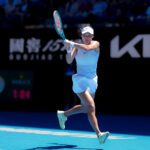
Italian, Wimbledon, injuries: Everything you always wanted to know about Matteo Berrettini (but never had time to find out) – updated after reaching 2025 Doha quarter-finals
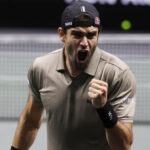
Big sister, ELEVEN, Wimbledon: Everything you always wanted to know about Venus Williams (but never had time to find out) – updated with 2025 Indian Wells wildcard entry
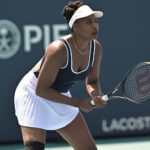
February 20, 1994: The day Martina Navratilova won her 167th and final singles title


